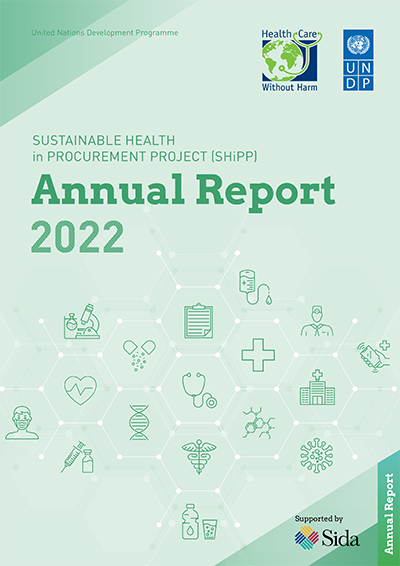2022 saw the culmination of the Sustainable Health in Procurement Project (SHiPP), developed by the United Nations Development Programme (UNDP), in collaboration with Health Care Without Harm, and funded by the Swedish International Development and Cooperation Agency (SIDA) that spanned five years.
Under SHiPP, health care organizations in ten project countries took significant strides to address the impact of health care operations, leveraging health procurement as a catalyst for change. This project has spotlighted how incremental adjustments in health supply chains can result in substantial advancements toward climate-resilient and intelligent health systems.
Some of the products launched during the project include sustainable procurement guidelines for different products, including gloves, syringes, and medicines. These guidelines have helped countries to procure more sustainable products and services.
The project also focused on building capacity for sustainable health care at every stage of the supply chain, and over 1,000 health professionals were trained in sustainable procurement and supply chain management.
The final year of SHiPP aligned with broader climate commitments. The project's collaborative approach resulted in the launch of tools like the Sustainable Procurement Index for Health and the Sustainable Procurement Checklist, both designed to drive sustainable practices across the health sector.
SHiPP has assisted in influencing policy at the national and subnational levels, building a strong foundation for continued change through strengthening capacity at several levels of the sector, from procurement officers to health ministries, creating tools and awareness, and transforming the market through aggregating demand around progressive criteria.
